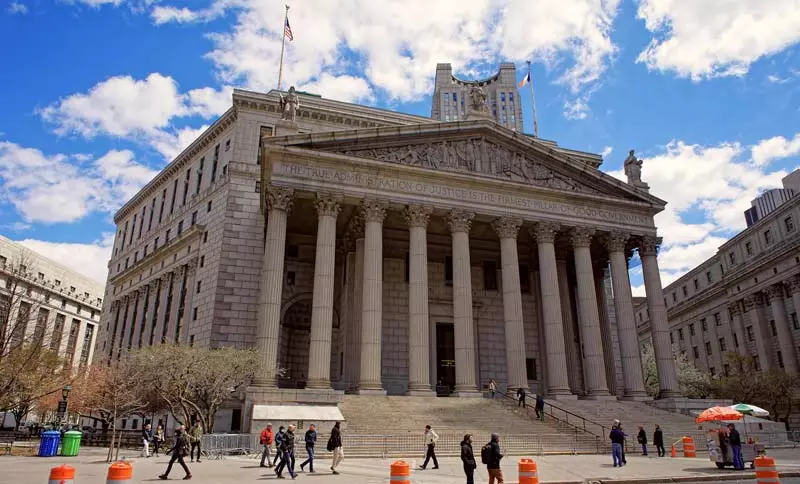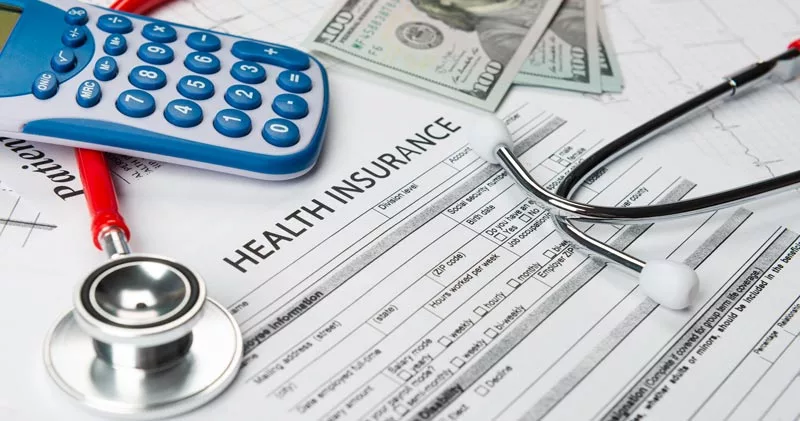Finding the New York Addiction Treatment for Your Needs
Table of Contents
- Finding the New York Addiction Treatment for Your Needs
- Seeking New York Substance Abuse Treatment Resources
- The Opioid Crisis in New York
- The Need for Inpatient Drug Rehabs in New York State
- Services for Intervention in New York
- The Demand for Drug Rehab New York Services
- Specialized Programs Offered by New York Alcohol Rehab Centers
- How Do Drug Courts Work in New York?
- How Much Does Rehabilitation in New York Cost?
- Can You Use Insurance for a Drug or Alcohol Rehab in New York?
- Can you Pay for Rehab Without Insurance?
- Does EmblemHealth Insurance Cover Substance Abuse and Alcohol Rehabilitation?
- What Does EmblemHealth Insurance Cover?
- What Is the Process of Gaining EmblemHealth or GHI Coverage?
- Terms to Know for EmblemHealth and Insurance Coverage for Rehab
- Reasons to Choose GHI Emblem Insurance
- Getting Ready for Rehab in New York
- What Can You Expect from New York Alcohol Rehab Centers?
- Where Can I Find the Best Drug Rehab: New York
- How to Select a Rehab Facility in New York
- Find Top New York Addiction Treatment Services Now
- Medically Reviewed By
In New York City alone, the country’s most populous urban area, top-quality addiction treatment is in high demand. According to research conducted by the Centers for Disease Control and Prevention, drug or alcohol addiction was responsible for about one out of every ten deaths in New York between 1999 and 2018. From this single statistic alone, its clear that finding New York alcohol and drug rehab centers is a stark priority for residents of the state.
According to the same study, 12% of respondents smoked, and one-quarter admitted to binge or excessive drinking in the 30 days preceding the poll. It is estimated that approximately 500,000 persons in New York State use hard narcotics like cocaine and heroin, with another million suffering from alcohol use disorder.
In the last ten years, alcohol and drugs have been responsible for 14% of all fatalities in the state of New York, and there were over 9,000 crashes in the state last year involving drivers under the influence of drugs or alcohol.
Seeking New York Substance Abuse Treatment Resources
In 2017, a total of 278,705 people sought treatment at a rehab facility in New York, with the vast majority of them addicted to heroin, alcohol, or cocaine. These numbers highlight the need for rehabilitation clinics to deliver as many patients as possible with effective, comprehensive, and tailored treatment regimens.
In New York, there are 898 drug and alcohol treatment centers dedicated to preventing substance abuse and providing patients with evidence-based care. They provide comprehensive screening and diagnosis for substance abuse, with 52.9 percent also providing mental health assessments.
If you’re considering seeking help and want to know how to find the best rehab centers in New York, keep reading to discover more about your detox and rehabilitation options.
According to the Substance Abuse and Mental Health Services Administration (SAMHSA), the majority of difficulties treated by New York State drug treatment institutions are connected to the following substances:
The Opioid Crisis in New York
Regrettably, New York is not immune to the devastating consequences of the country’s drug epidemic. Opioids are widely available throughout the state, both prescribed and illicit, but prescription opioids are the most hazardous. According to the Centers for Disease Control and Prevention (CDC), 42 out of every 100 New Yorkers had prescriptions for opioids in 2016.
However, in the same year, 2,316 New Yorkers died of an opioid overdose, giving the state one of the highest rates of opioid-related death in the country. Despite these gloomy statistics, New York City citizens can find hope and healing. If you are having difficulty overcoming an addiction, the following services can aid you in locating treatment.
The Need for Inpatient Drug Rehabs in New York State
Only a small fraction of those suffering from a substance use disorder will be able to heal unless they receive appropriate addiction therapy. Addiction to alcohol, illegal drugs, and prescription pharmaceuticals is a complicated condition that is best managed with the assistance and support of skilled healthcare professionals.
Comprehensive addiction treatment programs address more than simply the physical repercussions of addiction. Furthermore, they provide several therapies aimed at assisting patients in creating long-term healthier lifestyle choices.
The majority of people or their family members begin treatment by locating a suitable institution. After locating a provider, competent specialists evaluate the patient’s specific needs to create a tailored treatment plan. The services may include parts of or the complete continuum of addiction treatment therapy.[/vc_column_text]

Services for Intervention in New York
One of the most difficult challenges to overcome is the decision to seek treatment. Family members of active addicts typically wait and hope that their loved ones will ultimately seek help. Regrettably, many people are incapable of taking the first step.
Intervention services may be effective in this scenario. Trained specialists provide support and assistance, work with friends and family members to encourage their loved ones to get help, and discuss with the client about knowing their treatment options.
The Demand for Drug Rehab New York Services
Many people avoid therapy because of the physical pain involved with withdrawal. Withdrawal symptoms can be life-threatening in severe circumstances. In these cases, drug and alcohol detox is an important part of the treatment process because it allows people who are actively addicted to safely eliminate substances from their bodies while being monitored and supported by healthcare professionals.
Inpatient Drug Rehabilitation
Many people feel that after the detoxification procedure is complete, they are “healed.” Long-term rehabilitation, on the other hand, entails treating the psychological and emotional difficulties that underlie substance misuse.
In this regard, residential addiction treatment facilities in New York are highly advantageous, as they offer a comprehensive menu of therapies, support, and resources required for long-term success.
Some of the benefits of an inpatient addiction treatment program are as follows:
- There is no access to illegal drugs or alcohol.
- Healthcare workers are available 24 hours a day, seven days a week.
- Consistent monitoring
- Structure and day-to-day procedures that have been meticulously designed
- Nutritional diets, physical activity possibilities, and appropriate sleep are all available.
Addiction Treatment in New York State
With one significant exception, outpatient addiction treatment centers provide many of the same therapies as inpatient programs. Rather than remaining on-site for the duration of the program, participants return home each evening after treatment.
While some clients prefer this form of treatment to inpatient care, it is most commonly utilized as step-down support for patients who have completed an inpatient program.
Alumni Services and Aftercare
Individuals who have finished an addiction treatment program might receive long-term assistance through aftercare and alumni programs. These programs make certain that clients’ rehabilitation continues even after they return to their homes and jobs.
Specialized Programs Offered by New York Alcohol Rehab Centers
Pharmacologically Supported Therapy
Withdrawal symptoms can range from mildly uncomfortable to lethal. Fortunately, there are FDA-approved drugs that can help you avoid or reduce the severity of withdrawal symptoms. In medication-assisted treatment programs, several drugs are utilized in conjunction with behavioral health therapy to aid in long-term rehabilitation.
Co-Occurring Disorders Treatment
A person suffering from a substance use disorder is also prone to suffer from a mental health disorder. These co-occurring illnesses necessitate a highly tailored approach to therapy. People who have been diagnosed with two diseases benefit the most from programs that address both.
Groups for Gender-Specific Therapy
Participants in group therapy can chat with and receive support from others who are recovering from substance use problems. Certain people, however, are unable to benefit fully from group treatment with both men and women. In some cases, gender-specific treatment groups are more beneficial. Aside from single-gender treatment facilities, other programs such as ‘Women for Sobriety,’ meet in NYC and throughout the state.
Drug Laws in New York State
Several New York state drug laws have been enacted to help addicts and prevent future generations from becoming addicted. The following are some of the most important New York drug laws:
Program for Prescription Drug Monitoring (PDMP)
Providers can check a state registry before issuing a prescription to see if their patients have received specific prescriptions from other physicians. The PDMP aims to eliminate “doctor shopping,” or the practice of going to many doctors to stock up on the same prescription drug.
The 911 Good Samaritan Act
In the event of an overdose, this act provides limited immunity against drug possession charges, prosecution, and arrest. This encourages people to call 911 to defend themselves or others, regardless of whether they have narcotics in their system or on their person. Those who call 911 while in possession of up to 3.5 grams of cocaine or heroin, for example, are not arrested.
The Anti-Drug Act in New York
Non-medical personnel is permitted to own and administer naloxone, a medicine that reverses the symptoms of an opiate overdose, in New York. This law aids in the prevention of heroin and narcotic painkiller overdose deaths. The state also provides naloxone training seminars through the OASAS.
Despite high rates of drug misuse in the state, New York has one of the lowest fatality rates from drug overdoses in the country, thanks in part to legislation like this.
New York Medicaid and Addiction Treatment
In comparison to other states, New York’s Medicaid policies are rather distinctive. Medicaid is a federal-state healthcare program for low-income people. Medicaid enrollees in New York have access to both mandatory and elective services.
In 2014, New York expanded Medicaid health coverage under the Affordable Care Act, also known as “Obamacare.” Previously, addiction treatment was an optional Medicaid benefit; now, New Yorkers’ state health insurance covers all mental health and substance abuse services.
Before New York’s new addiction treatment guidelines, Medicaid only covered inpatient rehab for a small percentage of patients and did not cover the cost of detox at all. Since January 2015, Medicaid recipients in New York have been able to use their coverage for any sort of mental health care, including inpatient rehabilitation and detox.

How Do Drug Courts Work in New York?
The goal of New York State’s drug court system was to reduce the number of repeat drug offenders. The state currently has 147 drug courts. If they are imprisoned for nonviolent drug offenses, the law authorizes them to seek addiction treatment in these courts.
Drug court participants may have their charges and/or penalties dismissed or reduced. Drug courts offer New Yorkers an important opportunity to turn a terrible situation into a positive one.
How Much Does Rehabilitation in New York Cost?
The cost of recovery is influenced by a variety of factors. Among these elements are the following:
- Length of stay
- The type of program.
- Form of Insurance policies, such as Blue Cross Blue Shield
If you have insurance, speak with your provider about your plan. In the state of New York, 75% of all treatment centers accept private insurance.
If you don’t have insurance, don’t let that stop you from getting counseling. Many clinics are conscious of the financial burden associated with treatment and want to increase access to those in need. 47 percent of New York recovery programs provide treatment to individuals who cannot afford it, and 79 percent have a sliding scale payment structure, which implies that the cost is reduced based on your income level and what you can fairly afford.
Medicaid Treatment Coverage in New York
Medicaid recipients may be eligible for no-cost therapy. There is no Medicaid payment owed, and there is usually minimal or no copay. However, because Medicaid and the institutions that accept it are so popular, finding a program without a huge waiting list may be challenging. In New York, for example, Medicaid covers more than 7 million people.
Can You Use Insurance for a Drug or Alcohol Rehab in New York?
Drug rehab in New York can be paid for using private health insurance. Regardless of how cheap the cost is, the individual is always responsible for at least the cost of the insurance. Private insurance, on the other hand, has a reputation for refusing claims or covering only limited stays in rehab with inadequate levels of care. While this saves them money, it harms the patient.
Many people cannot afford private health insurance but earn too much to qualify for standard Medicaid coverage. The good news is that New York has a fantastic exchange program that allows citizens to apply for low-cost insurance from participating insurers.
Through New York’s health insurance exchange marketplace, the following insurers are available:
- Capital District Physicians’ Health Plan
- Emblem or GHI
- Excellus Health Insurance
- Fidelis
- PHSP Healthfirst
- HP Health+
- Western and Northeastern New York’s highest point
- The Corporation for Self-Administered Health Benefits
- Metro Plus Health Insurance Plan
- MVP’s Health Insurance Plan
- Oscar
- New York UnitedHealthcare
Can you Pay for Rehab Without Insurance?
Even though the resources listed above are available, some uninsured individuals must pay for counseling. This is understandable because people who develop a drug addiction often lose their ability to care for themselves. Keeping health insurance or enrolling in Medicaid are examples of this. When therapy is required, there is no time to waste looking for policies that will most likely reject coverage for such operations at the outset.
A more reasonable approach would be to look for a program that accepts payments on a sliding basis. The sliding scale makes therapy more affordable for patients by basing the cost on their income and providing discounts to those in most need.
Does EmblemHealth Insurance Cover Substance Abuse and Alcohol Rehabilitation?
EmblemHealth Insurance is non-profit health insurance with offices in New Jersey, Connecticut, New York State, and New York City (the tri-state area).
Insurance Plans from EmblemHealth
Individuals and families can choose from several EmblemHealth insurance plans, including the following:
- HMOs and PPOs are examples of healthcare plans.
- Medicaid, HARP, and CHPlus are all state-funded programs.
- There are several Medicare Advantage programs to choose from.
- Essential, Catastrophic, Bronze, Gold, and Platinum plans are available with a variety of deductibles, preventive care coverage, and telemedicine alternatives.
What Does EmblemHealth Insurance Cover?
If you are battling with substance misuse, EmblemHealth’s rehabilitation coverage may be of assistance to you. Substance abuse is covered by all EmblemHealth tiers and policy levels. EmblemHealth’s mental health services are provided in collaboration with Beacon Health Options. Their behavioral health coverage, like their other ailments, includes substance abuse therapy.
When determining whether EmblemHealth insurance policies will cover addiction treatment, it’s ideal to start by determining which treatments and programs will be appropriate for your circumstance. EmblemHealth may be able to assist you with the following procedures, regardless of the sort of support you seek:
- Inpatient treatment for drug and alcohol addiction.
- Substance abuse treatment is provided on an outpatient basis.
- Programs of intensive outpatient treatment.
- Programs for partial hospitalization.
The out-of-pocket fees or copays for various procedures differ depending on the tier level.

What Is the Process of Gaining EmblemHealth or GHI Coverage?
Coverage for substance abuse and mental health treatment varies depending on the plan and the state of residency. The majority of EmblemHealth policies, on the other hand, will cover some type of substance misuse counseling.
In many cases, treatment will necessitate prior approval. Preauthorization, also known as prior authorization, occurs when a health insurer considers that a specific therapy or healthcare service is medically required. Preauthorization is not usually required for emergency or routine outpatient appointments.
Furthermore, for substance abuse and mental health treatment, EmblemHealth frequently mandates members to meet deductibles and/or pay co-pays or coinsurance.
Terms to Know for EmblemHealth and Insurance Coverage for Rehab
A deductible is the amount of money that a member must pay for qualifying services before the health insurance company begins to pay for them. Members with $1,000 deductible plans, for example, are responsible for the first $1,000 in covered treatment categories.
Members pay pre-determined sums for treatment through co-pays. It may be required before or after a member’s deductible has been met.
Coinsurance is a proportion of the total cost of a covered therapy that a member must pay after their deductible has been met. Monthly premium health plans with greater monthly premiums typically have lower co-pays and coinsurance rates than monthly premium health plans with lower monthly premiums.
Reasons to Choose GHI Emblem Insurance
There are numerous compelling reasons to use EmblemHealth or GHI for addiction treatment. For example, it could result in a significant reduction in treatment costs.
Furthermore, alcoholism and substance abuse are becoming increasingly common and serious issues throughout the tri-state area. Around 17.6 million Americans—one out of every twelve adults—are dependent on or misuse alcohol and millions more engage in risky drinking habits.
Although opioid prescriptions are provided at a lower rate than the national average, opioids were responsible for nearly 90% of drug overdose deaths in New York.
Getting Ready for Rehab in New York
1. Meet your work and family responsibilities.
While you may be reluctant to inform your employer of your approaching rehab stay, anyone who regards you as an employee will want you to heal. They want you to be the healthiest, happiest, and greatest version of yourself possible, therefore contact your supervisor as soon as possible.
You are entitled to up to 12 weeks of medical leave under the Family and Medical Leave Act, ensuring that your career is protected while you are getting treatment.
If you are caring for children, elderly parents, or even pets, now is the time to establish plans to ensure their safety while you are away. Inquire about temporary care services or request assistance from family or friends to care for your children or pets. It will give you peace of mind to know that the people you care about are in capable hands while you are away. Another option is a pet-friendly rehab, which our recovery representatives can help you find no matter where you may reside.
2. Resolve any outstanding financial or legal matters
If you have expenses that must be paid while you’re gone, set up automated payments or talk with a trusted friend about how to do it. You don’t want to come back, ready to face life, only to be met by financial difficulties.
3. Make Certain That You Only Have the Necessary Items
While it may be tempting to bring everything that reminds you of home, packing only what you need will ensure that you stay within the confines of your treatment center’s permitted items list. By limiting your activities to the strictly required, you will reduce external distractions that could jeopardize your sobriety. While you’re recuperating, your major attention should be on yourself and your therapy; therefore, leave any “extras” at home.
4. Take delight in your company
Before entering treatment, you may feel as if you have a million duties ahead of you. But, before you go, take a moment to thank the good people in your life. Your family and friends will encourage you to make the most of your treatment and will reaffirm that you made the right decision in seeking help.
It’s okay if you have to reach out to them and say how much you care about them and how grateful you are to have them. Inform them of your motivation for getting treatment as well as the improvements you expect to notice in yourself upon your return. This will help to hold you accountable for sustaining your sobriety when you return.
5. Keep a journal or write a letter
To keep your thoughts engaged and to check in with yourself, write a letter to yourself or a loved one. The letter can contain whatever you choose, from a list of recovery goals to hobbies you want to pursue once you leave. It could just be your overall attitude toward the problem.
You can also keep a personal notebook to record your everyday feelings and keep track of what has been more or less tough in the days leading up to therapy.
6. Make Time for Relaxation
Why not get a head start on rehab preparation if you’re going to rehab to reclaim your health? Consider doing something that relaxes you. Is it going for a little walk around the block? How about relaxing in a hot tub? Are you watching a show you like?
Dedicate yourself to whatever activity will allow you to unwind and become excited about this new chapter in your life. While it is natural to be concerned about attending therapy, try to be as calm as possible in the days leading up to your departure.

What Can You Expect from New York Alcohol Rehab Centers?
If you or a loved one needs alcohol or drug treatment in New York, being prepared will help you understand the treatment process better. Typically, the following phases will be included in your admission and rehabilitation process:
Making contact with the treatment center:
Typically, a friendly admissions navigator is available through chat or phone. They will listen to you, provide recommendations for alternative treatments, and provide additional information about the center’s services. You can then plan your stay at the facility and make any necessary arrangements based on this information.
Conducting medical and psychological evaluation:
Following your admission to a drug treatment facility, caregivers will do a medical and psychological evaluation to determine the sort of care you require. They will be able to propose the best course of therapy for you once they have determined your diagnosis.
Obtaining a one-of-a-kind treatment solution:
After providing you with your personalized treatment plan, the staff will ensure your comfort as you embark on your road to recovery. Your treatment plan may involve a combination of drugs to relieve withdrawal symptoms, various therapy modalities to aid in recovery and relapse prevention, and aftercare planning.
Local Addiction Recovery Resources
- The state’s Office of Alcoholism and Substance Abuse Services keeps a list of treatment providers on file.
- The state organization of Alcoholics Anonymous can connect you with AA 12-step groups located throughout New York State.
- Narcotics Anonymous 12-step self-help groups can also be found around New York.
- A rehabilitation helpline is available to veterans in New York.
Where Can I Find the Best Drug Rehab: New York
Because the state has a large number of outpatient and inpatient drug rehab clinics, New York is a good place to start your search for alcohol or drug addiction therapy. The rehabilitation centers now available in New York are summarized below:
- There are 637 private non-profit organizations in the United States (70.9 percent)
- There are 148 for-profit private corporations (16.5 percent)
- Community, county, or municipal government funding: 61 (6.8 percent)
- 39 are government-funded (4.3 percent)
- Financial assistance from the federal government: 9 (1.0 percent)
- The tribal administration pays for four of them (0.4 percent)
Because the state has a large number of institutions that provide alcohol and drug rehab, it is vital to investigate each institution’s treatment alternatives, insurance, and payment plans accepted, admissions methods, and other information. Individuals seeking expert guidance may find the finest solution by contacting a center’s professional helpline.
How to Select a Rehab Facility in New York
Those who are addicted to drugs or alcohol must obtain high-quality counseling. Keep the following factors in mind while selecting a treatment center in New York to ensure a comfortable stay and a safe recovery:
- Locate a rehabilitation facility that can help you based on your specific needs. Inpatient care may be more beneficial to some patients than others. In addition, the clinic may offer dual diagnosis and treatment for co-occurring mental or physical disorders.
- Reputable treatment institutions will be accredited by government authorities such as CARF, SAMHSA, and The Joint Commission. This ensures that the quality of care you receive meets the proper standards.
- The employees at the facility should be knowledgeable, well-educated, and trustworthy. To optimize the therapeutic benefits of treatment, these professionals must collaborate and approach the situation from a patient-centered standpoint. It’s also worth
Find Top New York Addiction Treatment Services Now
When individuals who are addicted to alcohol or drugs quit using them suddenly, they commonly encounter painful and potentially life-threatening withdrawal symptoms. As a result, the one and only safe way to stop using alcohol and drugs are to enroll in a proper medical detox program.
If you are struggling with an alcohol or drug addiction and don’t know where to turn for help. Find Addiction Rehabs provides you with all of the information you need to select the finest alcohol rehab center for you or a loved one based on location, pricing, amenities, and treatment options.
Brandon is a highly skilled content writer and behavioral health marketer with over a decade of experience. In his own words: in my work with Find Addiction Rehabs, I have dedicated my expertise to a cause close to my heart – substance abuse recovery. Through my passion for the field, I’ve successfully compiled a track record of crafting compelling content that educates, inspires, and supports those on their recovery journeys.


